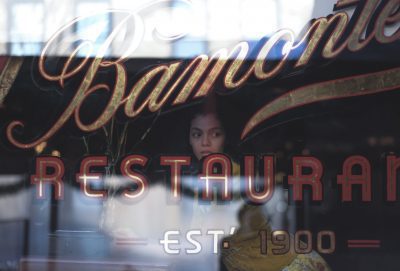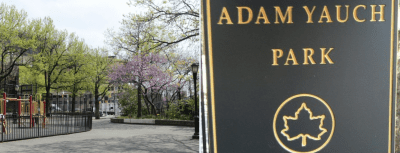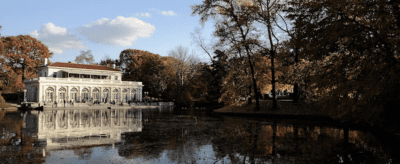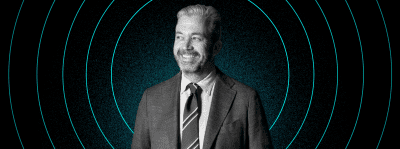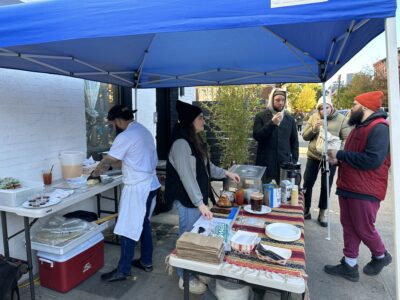Locking down with the Lord
A visit with Brooklyn Visitation Monastery’s mother superior, who reflects on life during Covid (spoiler: it’s not that different)
For a very small subset of the Brooklyn population, the pandemic has brought little change. The Sisters of the Visitation of Holy Mary are used to sheltering in place. They’ve been doing it for more than 165 years. But these women hardly live a medieval existence. The Visitation Sisters remain connected and current; they email and blog, have an active Facebook page and post videos to YouTube.
Brooklyn Visitation Monastery, in the shadow of the Verrazano-Narrows Bridge in Bay Ridge, where the sisters live, has been part of the community since 1903 and the order itself has had a presence in the borough since 1855. The monastery, a former rehab facility for alcoholics, spans two city blocks and encompasses seven acres. Hidden behind its twenty-foot walls are expanses of grass, a large pond and a small forest of trees—as close to bucolic as the borough gets.
Inside the monastery itself, guests are welcomed into a simple room with an oval table and several chairs. There is a cross hanging on the far wall, beneath which sits Mother Susan Marie Kasprzak. She wears a black habit and black sneakers, her only adornments a watch and a silver cross necklace.
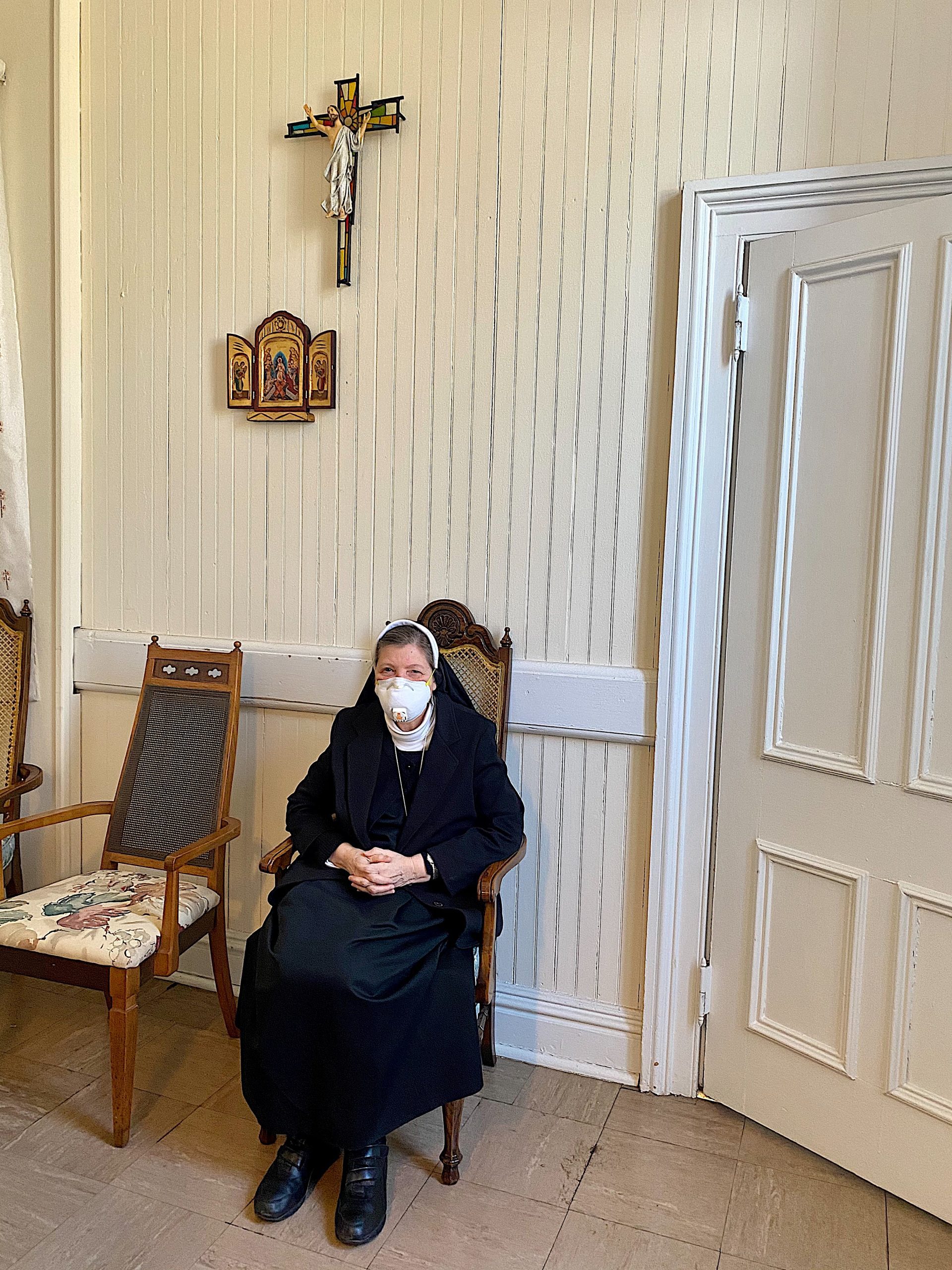
Mother Superior: Didn’t jump the gun
Born and raised in Brooklyn, Mother Susan Marie, 69, first joined the order in 1988. Her story is unusual: Her journey starts in Greenpoint, where she grew up, and moves on to Hunter College, where she studied English Literature, followed by a successful career in radio sales and television research. She was a “normal” person, a woman who spent seven years working at NBC before leaving for monastic life.
Now, she is the Mother Superior, leading the 10 cloistered sisters in a job that is both spiritual and administrative. She provides a spiritual ear for the other nuns while also managing the general upkeep of the monastery and liaising with Brooklyn Visitation Academy, the affiliated girls school. It’s a managerial and public-facing job. “Legal as well,” she adds, laughing. “You name it. All the categories, they’re all part of it.”
For her devotion, Mother Susan Marie receives room, board and healthcare but no personal payment.
The monastic experience
Mother Susan Marie has a solid grasp of modern culture, despite being literally cloistered for over 30 years. She knows the term “woke.” She can hold court about cancel culture–why it’s so hard to forgive–and commuter life. She’s Brooklyn in many ways–her accent, her sense of humor, her love of the city’s diversity. She never planned on becoming a nun, or even considered herself particularly religious when she was younger.
“I had the basics of the faith,” she explains. Then something providential happened. “I found a newspaper that I didn’t order in my mailbox. It had an advertisement for a monastic experience in Missouri.” She took a trip to Missouri and learned more about deep prayer, sparking her interest in monastic living and beginning her journey towards the sisterhood.
Despite having grown up in Brooklyn, Mother Susan Marie had never heard of Visitation Monastery. “I lived 12 miles away which is far in Brooklyn,” she says with a laugh. “Here, that’s a big distance … a lot of neighborhoods in between.” She first heard about the monastery during a trip with a prayer group to New Jersey. She signed up for a weekend retreat, a rare offering among cloistered convents and something that the monastery still provides to women looking for a few days of rest or prayer.
“Basically, the day I walked in and was in the retreat area I said, ‘I think this is it.’ I just felt something,” she says. “You can’t explain mystery.”
Mother Susan Marie likens it to an awakening. “I hear about woke people; that’s exactly how I felt,” she says. “I awoke. It was something deep and interior and you can’t really express it.”
Two years later, she gave up her job, her possessions and everything about her old life to become a postulant, the first step towards monastic life. After two years as a postulant, prospective sisters become novices, another two-year period, after which they take their first vows. Five years later, they make their final profession and take their final vows. The vows, explains Mother Susan Marie, are solemn, which means pledging poverty, chastity and obedience.
The Visitation community follows the Salesian tradition, first established by St. Francis de Sales and St. Jane de Chantal in 1610 in Annecy, France. The spirit of the order is to live with gentleness and humility.
“Gentleness with our neighbor and deep humility with God,” says Mother Susan Marie. “Which basically means truthfulness – knowing who we are – and knowing who the creator is, knowing we are not Gods ourselves, but putting ourselves in a humble position.” The women lead lives of prayer. They are not out ministering, as some nuns are. Instead, their day is ordered around contemplation.
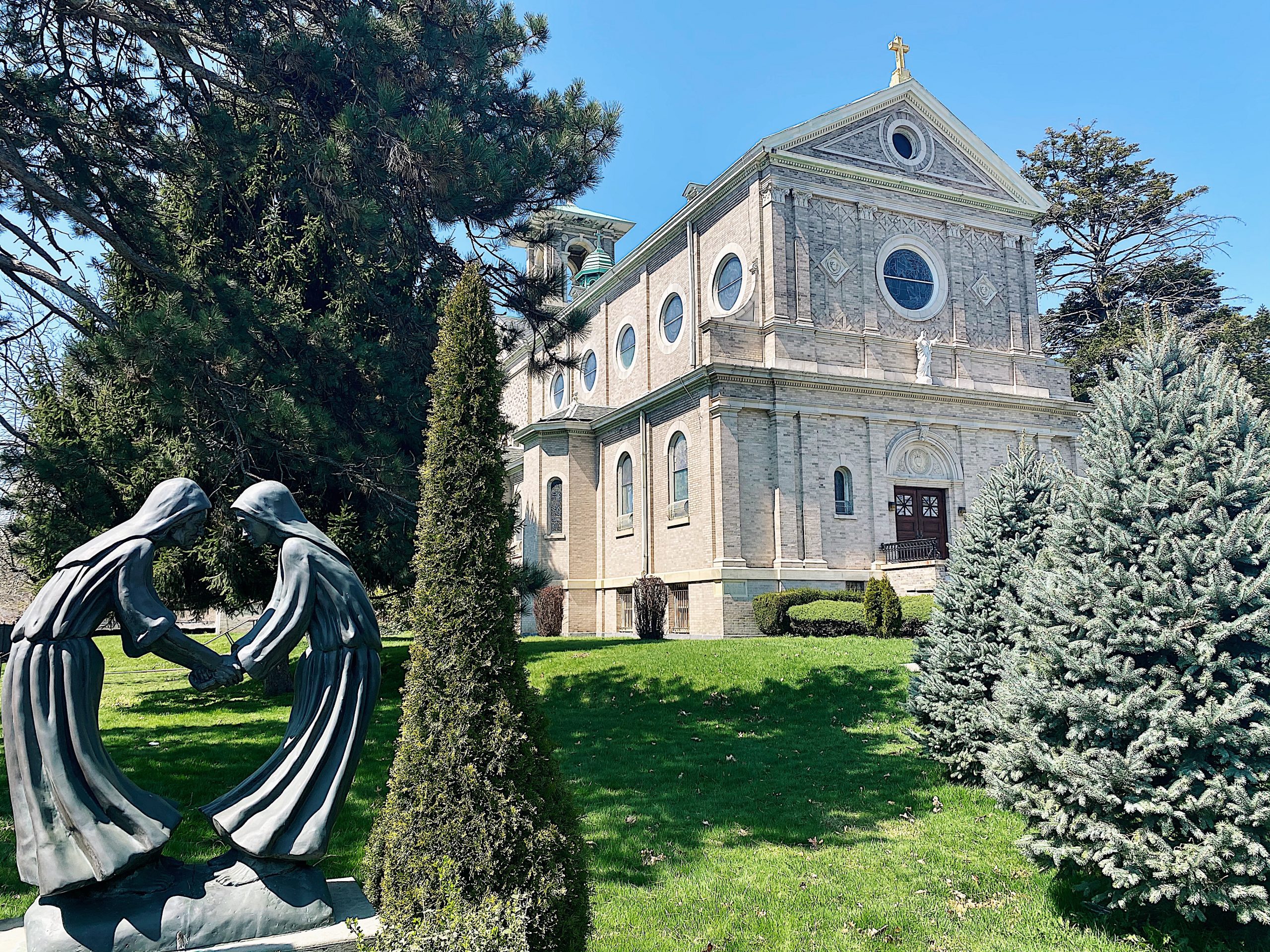

You call that Brooklyn? Inside the cloister walls
A ministry of prayer
The Visitation sisters rise early and pray throughout the day, with breaks for meals, recreation time and other tasks, which includes housework and managing their finances, teaching religion at Visitation Academy, tending to the infirmary and maintaining their website.
They chant the Liturgy of the Hours five times each day in addition to attending morning Mass, spending time in contemplative silence, in personal prayer, meditating, and praying the Holy Rosary and Adoration of the Blessed Sacrament. The women receive prayer requests from members of the community, and anyone can call in to ask for specific prayers.
“That’s our job, asking on behalf of people who need help, those who are struggling, who have had a bad day,” she says. “We’re beggars for others, beggars for other people, whether they know it or not.”
But the spoils of their work, explains Mother Susan Marie, are invisible: “They don’t see the results,” she says of the people she prays for. “But they know someone’s rooting for them.”
There are many parallels that one might be tempted to draw between life during the coronavirus pandemic and a cloistered existence, but none are completely accurate.
“What’s interesting to me is reading about what people are missing during Covid,” she says. “I gave that all up such a long time ago, it’s almost meaningless at this point.”
Where many of us have spent the pandemic waiting for life to return to “normal,” the women at Brooklyn Visitation have continued their lives as they are. They don’t look ahead or wait for life to happen, they exist in the moment. There are no meditation apps here, no billion-dollar wellness industry, where articles are published each week about “living in the now” and “how to be mindful.” When asked how she thinks a layperson might live a more contemplative life, Mother Susan Marie gives a simple answer. “Find quiet. Somewhere in your life, however you can do that.”
Also, she adds, “put the phone down.”
A simple life
As the Superior, Mother Susan Marie does travel to other Visitation monasteries around the world for order-related events, which means leaving the cloister from time to time. Still, she finds that she doesn’t miss the outside when she ventures into it. When she does leave, she notices a difference in the air, a swirling energy of sorts. “But then it fades,” she says, “and I find myself yearning to be back before the Lord … I couldn’t have told you this years ago, but over time this is what I have grown to live and love.”
There is something alluring about life at Visitation Monastery, an existence free from emails and texts, the hustle to the subway and the hectic cadence of modern life. It’s hard not to feel envious in a way (a sin!), even if you’re not called to its gates.
“This is a simple kind of life,” Mother Susan Marie insists, “but it’s a profound life at the same time.”
You might also like 

















